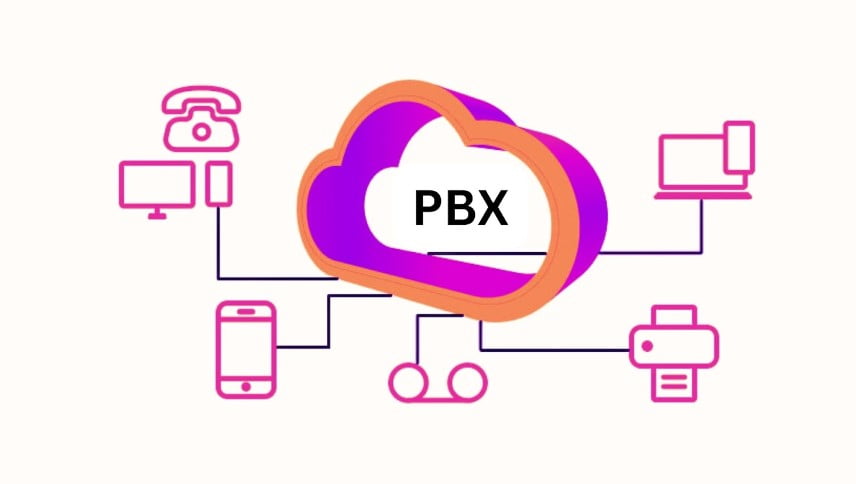Business communication methods have evolved rapidly over the past few years, with social media and instant messaging services dominating the corporate landscape today. However, telephones continue to play a crucial role in the daily operations of businesses of all sizes.
Private Branch Exchange (PBX) telephone systems have been a popular choice for business communication. They offer a wide range of advanced features, such as call forwarding, call transferring, call recording, and much more.
While PBX systems are essential for many businesses, there are different types available, including on-premises PBX and cloud-based PBX. In this article, we will explore the differences between these two systems to help you determine which one is the right fit for your business.
On-Premise PBX: What is it?
On-premise PBX is a traditional system that works within the business premises. With this system, businesses are required to purchase and maintain physical handsets, phone lines, servers, networking equipment, and other hardware within their office or data center.
Setting up, maintaining, and updating these components is the responsibility of the business itself. Due to the technical expertise and ample space required, on-premise PBX systems are typically used by large enterprises with experienced IT departments.
On-premise PBX systems typically route calls through various standard phone lines like SIP trunking, the Public Switched Telephone Network (PSTN), and the Global System for Mobile Communications (GSM). These systems offer features like call forwarding, call transferring, call recording, call queuing, and much more.
On-Premise PBX: Pros and Cons
Pros of on-premise PBX systems include greater control and security. The business owns and controls all the hardware, providing enhanced security.
Changes, configurations, and issue resolutions can be managed in-house without third-party involvement. While there are initial costs for equipment, long-term cost savings are possible.
However, on-premise PBX systems have drawbacks. They are more costly upfront due to hardware purchase and maintenance. Businesses need space to store equipment, and setup and maintenance can be complex, often requiring a dedicated IT team. This makes them impractical for smaller businesses.
Cloud PBX: What is it?
Cloud PBX, a type of cloud telephony system, is an ideal solution for small and medium-sized businesses. Unlike on-premises PBX, cloud-based systems operate, for example, in a cloud based call center, over the internet and are hosted by third-party providers.
Businesses only need to pay for the business phones and software, while servers, network equipment, licensing, and other components are managed by the cloud PBX provider. The provider is also responsible for system maintenance and updates, making cloud PBX services easy to install and use.
These systems use Voice over Internet Protocol (VoIP) for phone calls and are accessible through various devices, including desktops, tablets, smartphones, and VoIP phones.
Cloud PBX: Pros and Cons
Pros:
Cloud PBX systems offer several benefits, starting with their cost-effectiveness. These systems eliminate the need for businesses to purchase physical equipment, reducing installation costs. Cloud PBX providers are responsible for maintaining and updating the system. Most providers offer online portals for easy management of phone lines, updates, and maintenance.
Flexibility
The flexibility of cloud PBX systems is also a major advantage. They allow employees to customize phone settings, route calls to multiple devices, and access features such as text messaging, voicemail transcription, call recording, and integration with other services.
Other useful features often included in cloud-hosted PBX systems are online management, ring groups, voicemail-to-email, call queues, unlimited domestic calling, video/web conferencing, instant messaging, text messaging, auto-attendants, extension dialing, and conference calling.
Reliable Service
Reliable phone service is important for businesses. Traditional landline systems rely on copper cables and are susceptible to outages caused by various factors. In contrast, cloud PBX systems use the internet for call transmission, making them more reliable. Geographic redundancy ensures minimal downtime in the event of an issue.
Cons:
While cloud PBX systems are more affordable and user-friendly than on-premises solutions, they rely on internet connectivity. Additionally, users may have less control over the system.
Conclusion: Choosing the Right PBX System
The decision between an on-premises and cloud-based PBX system depends on a business’s size, budget, and operational requirements. Large enterprises with ample resources and experienced IT teams may prefer on-premises systems for their control and customization capabilities.
In contrast, smaller and medium-sized businesses often find cloud PBX systems more attractive. Cloud-based solutions are cost-effective, with a subscription-based model that suits budget constraints. They’re user-friendly and easy to set up, ideal for businesses without dedicated IT departments.
Lastly, cloud PBX systems offer scalability and accessibility, making them a solid choice for organizations that need flexibility and remote work capabilities.

